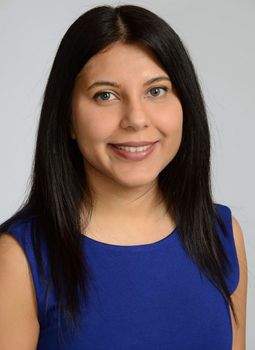Boosting research on cognitive decline and dementia
- UdeMNouvelles
03/31/2022
- Mylène Tremblay
CIHR awards $2.4 million for the creation of a UdeM co-led training platform for research on vascular dementia
On March 31, 2022, the Canadian Institutes of Health Research (CIHR) announced a $2.4-million grant to support the training and development of students and early career scientists researching cognitive decline caused by vascular dementia. As a result, the research community will now have a major new tool: the Vascular Training (VAST) Platform.
The VAST Platform will be co-led by Dr. Eric Smith of the University of Calgary, Dr. AmanPreet Badhwar, researcher at the Montreal University Institute of Geriatrics (IUGM) Research Centre and assistant professor in the Department of Pharmacology and Physiology in UdeM’s Faculty of Medicine, Dr. Bojana Stefanovic of the Sunnybrook Research Institute, and Dr. Erin Mazerolle of St. Francis Xavier University.
Vascular disease: the second leading cause of age-related dementia
As we age, the brain becomes vulnerable to vascular pathologies, which then play an important role in age-related cognitive decline and dementia. Proper blood flow in the brain is essential for maintaining cognitive function.
“By discovering better ways to support and promote brain vascular health, we may be able to prevent many cases of dementia,” explained Badhwar. “Therefore, a larger, more diverse and representative research workforce to expand existing knowledge of vascular cognitive decline and dementia in Canada is crucial.”
In addition to the CIHR funding, seven universities, including the University of Montreal, largely through the Fonds Courtois pour la recherche sur les neurosciences du vieillissement, have provided another $2.9 million to support students in this research field. In total, 72 mentors from 19 Canadian universities will provide online training for the VAST Platform in line with an equity, diversity and inclusiveness strategy aimed at remedying the under-representation of women, minorities, LGBTQ2S+ and Indigenous persons in the sciences. The platform will work with 26 external partner organizations—charitable organizations, non-profits and companies—to offer a diverse array of learning experiences.














